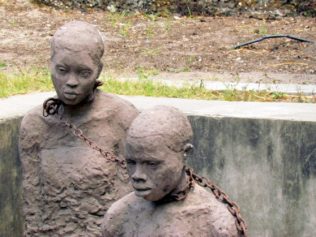Caribbean heads of government gathered in St. Vincent last week to discuss reparations from Europe for the enduring legacy of slavery. Professor Hilary Beckles, a Barbadian historian who chairs a reparations task force for these governments, wants to open talks with former slave-trading nations including the U.K., France, Spain, Portugal and the Netherlands.
The Oscar-winning film “12 Years A Slave” has opened up new conversations across the region, and what was once considered an unrealistic and unachievable demand now seems imaginable.
Campaigners point to the continuing socio-economic problems that have their roots in the colonial era. They argue that the present-day underdevelopment of the Caribbean is a direct and lasting legacy of the slavery trade, and descendants of enslaved Africans should be compensated for present-day injustices, rather than historical suffering. That the legal case will be difficult to establish is in no doubt; the moral case, however, is less easy to dismiss – especially when the nations of the former colonizers owe their present prosperity to, and are still benefiting from wealth accumulated from the slave trade and slavery. Though whites in the Caribbean represent a minority, they own most of the wealth.
Most of the largest businesses are owned by families who amassed huge fortunes from plantation slavery and, when slavery was abolished, from the compensation paid to them by the British government for the loss of their human property.
By contrast, not a single enslaved man, woman or child received even a penny for the backbreaking toil they endured almost every day of their lives, or for the loss of mothers and fathers, children, brothers and sisters caused by the callous separation of families. There was no compensation for the pernicious brutality exacted against them, or for the violent sexual assaults on enslaved women.
Even today, international trade agreements lock the region into disadvantageous Western-imposed tariffs that stifle economic growth. Yet many people across the region harbor ambivalence and antipathy to the idea of reparations.
Read the full story at theguardian.com


